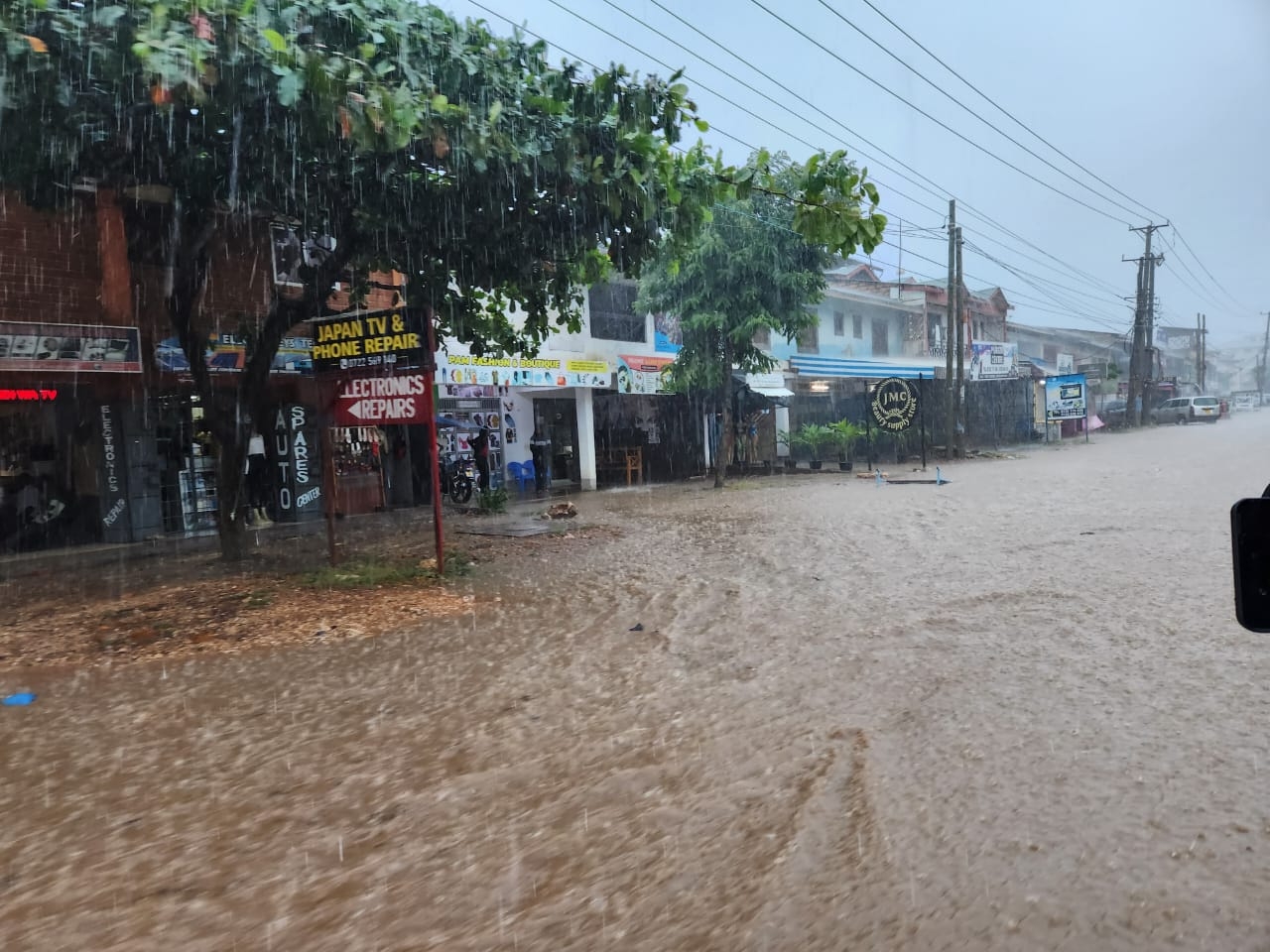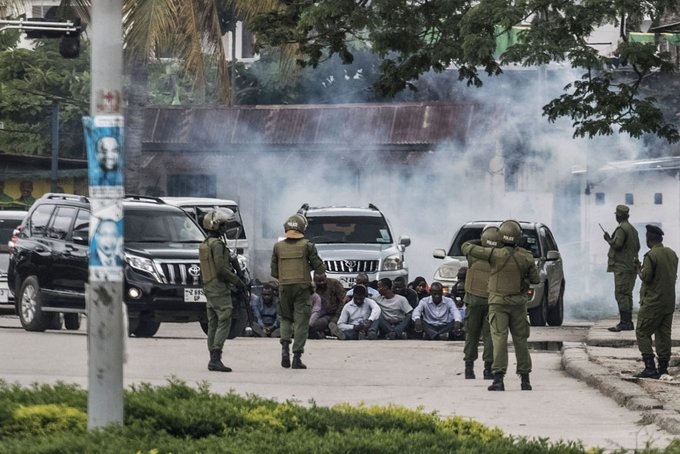President William Ruto last week pardoned 37 prisoners upon the recommendation of the Advisory Committee in line with the Power of Mercy Act 2011.
The offenders were pardoned through a gazette notice dated July 19, 2023.
But what exactly is this Power of Mercy?
According to the constitution of Kenya, the president can exercise that power on the recommendation of the consideration of petitions filed before the advisory committee on the Power of Mercy.
The Power of Mercy Advisory Committee (POMAC) is a constitutional committee established pursuant to Article 133 of the Constitution of Kenya 2010, and operationalised by The Power of Mercy Act No. 21 of 2011.
Mandate of POMAC
The committee’s core mandate is to advise the President on the exercise of the Power of Mercy.
The Committee ensures that the process of exercising the power of mercy is transparent, free from bias, just and used for public good.
The Committee studies the critical issues surrounding a petition, carries independent research, hears both the beneficiary of the petition and where necessary the testimony of others, reviews reports and recommendations from relevant agencies.
This is to ensure the Committee formulates and forwards to the President well-developed, thoughtful recommendations on all petitions for the exercise of mercy made by convicted criminal offenders or their representatives.
The Committee’s role therefore guarantees that the mercy process is predictable and procedural. The establishment of the Committee was part of the criminal justice system reforms.
Functions of the Committee
The Committee shall undertake or commission research and collect data on matters relating to the Power of Mercy and work with State organs responsible for correctional services to educate persons in correctional services on the power of mercy and procedures relating to applications for its exercise.
The committee carries out any necessary investigations required to make a determination on a petition for Power of Mercy and also partner with State and non-state actors to educate the public on the nature and implications of the Power of Mercy.
It can also undertake such other activity as may be necessary for the discharge of its functions and exercise of its powers and also carry out any other function as may be conferred on it under any other written law.
Eligibility to file a petition
Any person may, subject to the Constitution and this Act, petition the President, through the Committee, to exercise the power of mercy and grant any relief specified in Article 133(1) of the Constitution.
Notwithstanding the generality, a petition shall not be permitted where the person for whose benefit it is made, is on probation or serving a suspended sentence, or an application for any judicial remedy is pending before a court.
Contents of a petition
A petition must have particulars of the petitioner, details of the convicted criminal offender and the subject of the petition, if different from the petitioner
The petition must also have the nature and particulars of the offence committed, relief sought or nature of the petition, grounds for the petition, the age of the offender at the time of the commission of the offence and at the time of making the petition.
Other details include the circumstances surrounding the commission of the offence; whether the person, for whose benefit the petition is made, is a first offender, the length of period so far served by the convicted criminal prisoner, the length of period served by the convicted criminal prisoner in remand, and personal circumstances of the offender at the time of making the petition, including mental and physical health, disabilities.
The petition must also demonstrate the post-conviction conduct, character and reputation of the convicted criminal prisoner and any other relevant information as may be prescribed by the Cabinet Secretary on the advice of the Committee.
Consideration of petitions, notification of victims
Upon receipt of a petition for the exercise of the power of mercy, the Committee shall determine the admissibility of the petition.
The committee has all the necessary powers to determine the petition including calling for evidence, conducting interviews, carrying out investigations, and receiving and reviewing the necessary reports from appropriate government agencies or officials
The committee has powers to make appropriate recommendations to the president in accordance with the Constitution.
In determining the admissibility of the petition, the committee may consider whether the convicted criminal prisoner has served at least one-third of the sentence pronounced by a court and where a person who is convicted and sentenced to imprisonment for life or to death and whose sentence has not been effected, has served for at least five years.
The committee shall also consider any other matter that the Committee may consider necessary. The Cabinet Secretary shall, by notice in the Gazette, from time to time, publish the venue and time where a public hearing and interviews by the committee shall be conducted.
Where the relief sought under this part relates to a conviction for a felony in which there was a victim, and the committee will determine whether there is need to contact the victim.
Reasonable efforts shall be made to notify the victim who shall be entitled to make representations to the Committee.
Criteria to be applied by the Committee
The Committee shall, in making a recommendation consider the age of the convicted criminal prisoner at the time of the commission of the offence, the circumstances surrounding the commission of the offence and whether the person, for whose benefit the petition is made, is a first offender.
The committee will also consider the nature and seriousness of the offence, the length of period so far served by the convicted criminal prisoner, the length of period served by the convicted criminal prisoner in remand and the personal circumstances of the offender at the time of making the petition, including mental and physical health and any disabilities.
Also to be looked into are the interest of the State and community, post-conviction conduct, character and reputation of the convicted criminal prisoner, and official recommendations and reports from the State organ or department responsible for correctional services.
Where the petitioner has opted to pursue other available remedies, the outcome of such avenue and the representation of the victim where applicable, shall be considered.
The committee may consider, where applicable, a report of fellow inmates and reports from probation services.
Notification of grant or denial of petition
The President shall, within thirty days of receipt of the recommendations by the Committee, consider the recommendations and either approve or reject the petition.
Where the President approves or rejects a recommendation, the Committee shall, in writing, notify the petitioner or their representative of the President’s decision within seven days.
The Committee shall cause the approved petitions to be published, in the Gazette, within 21 days of the receipt of the president’s decision.
The decision of the President for each petition made shall be final.
Re-petition
A person may, after the rejection of a petition, re-petition only once and on new grounds, to the President through the committee.
The Committee shall consider a request for a re-petition and where it is satisfied that the request raises reasonable facts, inform the petitioner of the outcome and require the petitioner to file the petition in the prescribed manner.
Pardon not acquittal
Where the relief sought and granted in a petition for the exercise of power of mercy is a pardon, such pardon shall operate as conclusive proof that the committee and the President are satisfied that the petitioner for the pardon is deserving of the relief
The pardon shall not be construed to be an acquittal.
The chairperson may require any person having the custody or control of any judicial record of a conviction in respect of which a pardon has been granted, to deliver that record into the custody of the Committee.



















